Still, the longer answer isn’t that complex either. One could simply sum it up by saying that a VPN is almost always legal to use and purchase.
Most countries worldwide grant their citizens legal rights to their own privacy. In fact, the right to privacy is guaranteed under the United Nations’ human rights conventions, as well.
However, some countries have restricted people from using a VPN, and a few have outright banned the use of VPNs.
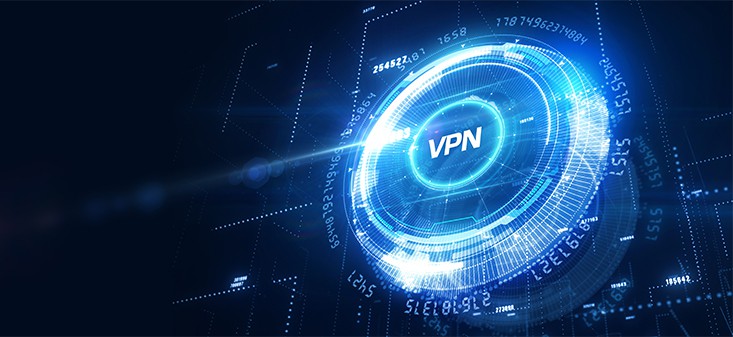
We’ll cover this and much more in the following guide:
Table of Contents
Are There Countries Where Using a VPN Is Completely Banned?
Iran: Should You Use a VPN?

The government in Iran doesn’t hide the fact that it blocks complete access to a fairly wide range of online services and websites. Using a VPN in Iran means the user must opt for VPNs that the government has approved. Most of these VPN service providers are domestic.
Apart from that, using a VPN from an international company/service is impossible in Iran, as the government has banned them.
So, there is no way to bypass Iranian government blocks if one lives inside the region. However, it turns out, about 40 million users on Facebook identify themselves as Iranians, according to data compiled by Internet World Statistics. That indicates they are using a VPN, since Facebook and many other social media sites are blocked in Iran.
Some have even alleged that more than a few members of the Iranian parliament regularly use a VPN to bypass their government’s censorship laws.
The fact that Iran’s own government officials are using VPNs clearly indicates that they’re legal in Iran as long as the user isn’t using a VPN to disrupt peace in the region.
But are there any loopholes while using a VPN? Whether VPN use in Iran is ubiquitous or not is beside the point. On the face of it, it may look like there aren’t a lot of risks involved with using a VPN in Iran. This may or may not be true.
But, at the time of writing this report, we have not come across many cases where the government in Iran arrested someone solely for using a VPN.
Iraq: Should You Use a VPN?
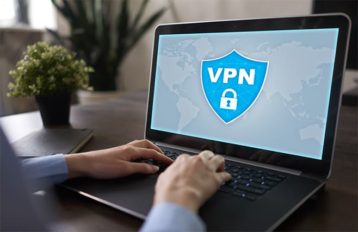
The act of using a VPN is completely banned in Iraq because of government efforts to track down ISIS members. On the face of it, this would make sense because the government in Iraq wants to prevent groups such as ISIS from exploiting VPN services. That said, it’s difficult to know what the on-the-ground situation is at the moment.
However, there is little doubt that Iraq (even now) has the technical expertise and infrastructure to successfully implement various kinds of VPN blocks. The government may also have methods to detect users who are using a VPN.
Some signs point towards the fact that a lot of people in Iraq are using a VPN, at least in areas where there is stable internet access.
However, it is also very likely that the government has found ways to heavily police the actual real-world use of the internet.
As for VPN options, using a VPN in Iraq means signing up for one that specifically mentions it works in Iraq. Before using a VPN, it is a good idea to ask the customer support department whether it works in Iraq or not.
United Arab Emirates (or UAE): Should You Use a VPN?

Back in 2016, media reports revealed that the United Arab Emirates had proceeded with its plan to ban the use of VPNs among citizens. At the time, some reports even mentioned that the UAE had decided to label any kind of tampering with the normal internet as equivalent to a crime. Unfortunately, there is a lack of clarity here when it comes to using a VPN.
No one can ascertain if using a VPN on its own is enough for an individual to get into trouble or if the user only gets into trouble if they try to access content that the Telecom Regulatory Authority (or TRA) has banned.
We are also inclined to think that using a VPN service in the UAE may come with a rather low amount of risk. There is no way to confirm this, but logic would indicate that the UAE wouldn’t issue major punishments for people who are only using a VPN to access streaming services, such as Netflix or Hulu, from outside of their home country.
Of course, if it is a UAE citizen who has purchased a package and is using a VPN in order to bypass or evade internet censorship, it is highly likely that the UAE authorities would jump into action to take that individual to task.
The same goes for someone who publicly shows political dissent and is using a VPN to hide their online activities. It’s also unclear whether or not the telecom companies in the UAE have the capacity to monitor and stop the use of VPNs.
It is now common knowledge that spying agencies of all sorts have the ability to use techniques such as deep packet inspection (or DPI) to catch someone using a VPN. Techniques such as DPI are very useful to analyze online internet traffic and spot if someone is using a VPN.
However, it seems that the UAE authorities still have not blocked access to VPN connections and VPN websites completely.
North Korea: Should You Use a VPN?
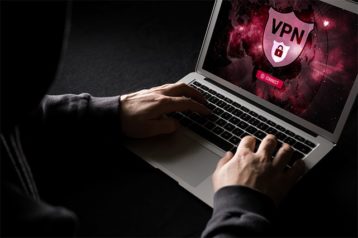
Given North Korea’s practice of isolating its citizens from the outside world, most people would assume that using a VPN service in that country is completely illegal. We don’t know for sure if that is the case or not.
Our research shows that so far, the government in North Korea has shown very little interest in making sure they effectively censor their international visitors’ access to the wider world of the internet. That leads us to the point that some people may like to think that if they even try to hide their online activities (by using a VPN) and other browsing habits while they are visiting North Korea, that might pique the interest of the country’s security services.
However, if you are nothing but a rare tourist in North Korea, not a journalist or human rights activist, the authorities may not care if using a VPN. Or at least, there is a very high chance that they won’t waste their already-limited resources on tourism and whether that tourist is using a VPN or not.
Note:
But ultimately, it is never a good idea to get on the wrong side of the law when it comes to the government in North Korea. Media reports have warned visitors to be vigilant while they visit North Korea when using a VPN.In short, the internet isn’t such a consequence-free place for people in North Korea. Using a VPN may come with a visit from the country’s security agencies.
Oman: Should You Use a VPN?
Here is how the telecommunications law in the great country of Oman works: No one is allowed to use any known method of obfuscation and/or encryption without going through the process of acquiring clear and explicit permission from Oman government agencies beforehand. That should mean that using a VPN is prohibited.
So far, though, we have not come across proof of any measure that the government in Oman has taken against people who use VPNs. So, if you’re thinking about using a VPN in Oman, you should consider it with caution.
Update: Oman has now explicitly banned individuals from using a VPN.
Syria: Should You Use a VPN?
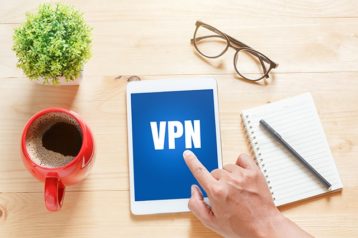
Syria is currently a war zone, which means the internet connection there isn’t how most people in western places like New York or London would imagine it. In other words, it is incredibly unstable. Using a VPN with an unstable connection is a problem of its own, but we won’t get to that here.
The Syrian government has placed strict censorship measures to prevent its people from accessing the internet. There is also some police intimidation. Sometimes, people such as journalists and political dissidents can get arrested and even tortured if they try to do something the government doesn’t want them to do. For such people, the fear of the government coming after them is a fact of life rather than an anomaly.
The Assad-led government in Syria retains firm control on the present internet infrastructure in the country. The government also makes sure to heavily monitor different internet cafes to look for people using a VPN for illicit purposes.
As a consequence of that, people have started to use illegal mobile phones that make use of Lebanese and/or Turkish network SIM cards and satellite connections, in addition to using a VPN for better accessibility.
These two methods form the primary channel for people in Syria to access the wider world of the open internet.
Turkmenistan: Should You Use a VPN?
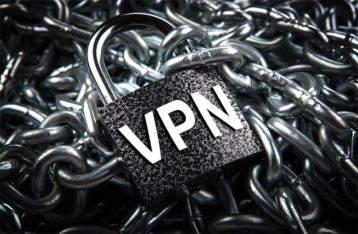
As far as government repression and close-mindedness go, there are very few governments ahead of the government in Turkmenistan. It is fairly close to North Korea in terms of the restrictions it places on internet use and the use of a VPN.
In fact, only a tiny percent of the total population of the country has access to free internet, while others are living without the internet. Moreover, the internet service available in Turkmenistan is expensive.
The government also makes special efforts to make sure that the country’s internet is slow. Using a VPN on top of a slow connection almost always slows the connection down even more. On top of that, it subjects that slow internet to a great amount of censorship, which requires the use of a VPN to successfully circumvent.
Some reports have stated that there is only one internet service provider in Turkmenistan, and that ISP is controlled by the government.
Sometimes they are summoned to the Ministry of National Security for preventive conversations against using a VPN. This is where these people who are caught using a VPN face a good amount of intimidation.
Needless to say, Turkmenistan is one of the top five countries where using a VPN is a big no-no.
What About Countries Where the Government Has Blocked the Use of VPN Services?
China: Should You Use a VPN?
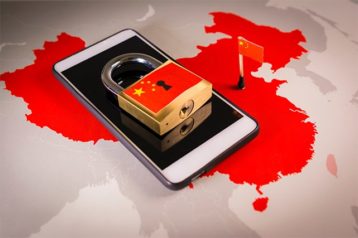
China has become notorious for employing the most sophisticated and far-reaching internet censorship systems in the world—what has become known as the Great Firewall of China. Hence, it should not come as a surprise to anyone that China doesn’t want its population of over 1.4 billion people to bypass the Great Firewall of China with the use of nothing but a VPN service.
The Chinese government employs a wide range of advanced technologies, almost all of which help the authorities to block user access to all known international VPN service providers.
Some of the most basic technologies make use of simple blocklists of Internet Protocol (IP) addresses that the Chinese government thinks belong to the VPN servers of various VPN service providers.
On the other hand, there are some advanced technologies, such as the deep packet inspection (or DPI) technique, which we covered above. This sophisticated technique assists China’s government agencies in detecting if and when a user has made use of VPN protocols.
It goes without saying that most VPN websites cannot withstand the blocking capacity of the systems that the Chinese government has installed for people living in China.
As a result of those technologies, no one can access VPN websites while in China. As such, no one can sign up for a VPN package and start using a VPN freely.
On the other hand, Hong Kong appears to have a free and open internet infrastructure. But Hong Kong’s autonomy is increasingly under threat, so users should approach this with caution.
Some media reports have also revealed that the Chinese government has started to crack down on VPN providers. But in reality, this crackdown is only for VPN providers that operate within China.
Egypt: Should You Use a VPN?
The government in Egypt is not friendly to VPN providers either. In 2017, Egypt’s government started its campaign of blocking access to new websites. The blocklist grew from dozens of entries to well over 500.
The government in Egypt has fully realized that its citizens are clearly using VPN services to bypass all censorship measures against them. This is the reason why the authorities ramped up their blocking efforts and have started to cut off access to official VPN websites as well.
Hence, users should exercise some care and caution.
Russia: Should You Use a VPN?

Back in November 2017, Russian President Vladimir Putin successfully signed a special bill that prohibited people from using proxy services and VPN services.
While the bill did lack some sharp teeth, it did not matter because currently, the Russian government simply doesn’t have access to the technical capabilities required to enforce such a large-scale ban on various international commercial VPN service providers. Still, they’ve ramped up their crackdown on foreign VPN service providers in recent years.
Note:
We have not learned of any real risk of using a VPN service from the perspective of the law in the country or otherwise. But still, we recommend exercising extreme caution.Vietnam: Should You Use a VPN?
The government in Vietnam is just like Russia and China in the sense that it too likes to access a wide range of categories of internet connection. More specifically, Vietnam’s government does not want its people to have access to sites such as Facebook, BBC or Human Rights Watch.
Back in 2012, the OpenNet Initiative published a report detailing the organization’s findings on the websites that were blocked by the government in Vietnam. It found that the government had blocked many VPN services and proxy websites, along with other kinds of internet circumvention technologies and tools—making it very difficult to use a VPN. In the category of internet tools, Viettel and FPT Telecom blocked sites like Facebook.
Countries That May Cause Trouble for VPN Users
Turkey: Should You Use a VPN?
Turkey is an interesting case. It has shown a proclivity towards blocking websites that have offended the country and its government. Turkey’s government also has a strong record of blocking content that is politically sensitive.
In Turkey, internet service providers have used techniques such as DNS poisoning for the purposes of blocking citizens from accessing content on YouTube when the government banned the popular streaming site back in 2014. VPN usage in such cases becomes necessary but not legal. Currently, VPN usage is legal in Turkey. Just don’t expect to access the official websites of VPN service providers.
Conclusion: Should You Use a VPN?
Are VPNs legal? One can legally use a VPN service almost anywhere, apart from North Korea, strict censorship-minded regimes and war zones. After all, the primary utility of VPNs is to change your IP address and grant you anonymity. You may violate some terms of service agreements, but as long as there is no illegal activity going on, you will get no problems from law enforcement authorities, internet service providers, streaming services and virtual private networks in a country like the United States.
However, it is illegal to use a VPN service in some countries. If you live in one of the countries mentioned above, we recommend exercising extreme caution when using VPN services.


I’ve been working in Egypt for over 4months. I’ve tried a couple of different providers, but ended up using Nordvpn. It has the obfuscation technology and seems to be holding back quite firmly. Quite expensive I’d say, but there’s coupons out there for cheaper subscriptions, the one I used was get1year, if still valid.
Thanks for the comment Johnny.
We’re glad that NordVPN is working out for you.
Have you tried subscribing to longer NordVPN subscription packages?
They do offer big discounts on those.